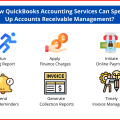IRS Payment Plans vs. Other Tax Relief Options: Which Is Right for You

Tax season: the annual tradition of crunching numbers, hunting for receipts, and asking yourself, “How is my refund only $12 when I’ve been working non-stop?” For some of us, though, it’s not refunds we’re looking at—it’s tax debt. If the IRS is knocking on your door (metaphorically, let’s hope), it’s time to explore your options. Should you go for an IRS payment plan, an offer in compromise, or a personal loan? Let’s break it down with a dose of humor to ease the pain.
Option 1: The IRS Payment Plan – Your New Financial Frenemy
An IRS payment plan is like setting up a payment plan with the most intimidating creditor of all time: Uncle Sam. The good news? The IRS is surprisingly flexible when it comes to installment agreements. They’d rather get their money over time than not at all.
This plan lets you pay off your debt in monthly chunks that don’t require selling your house or naming your firstborn “Internal Revenue.” The terms can stretch up to six years, depending on your situation, and applying is fairly simple (by IRS standards, anyway).
Pros:
- It’s official and straightforward—you’re working directly with the IRS.
- No third-party fees; just interest and penalties, which the IRS thoughtfully keeps applying.
- You avoid the scarier stuff like wage garnishments or liens on your property.
Cons:
- You’ll still owe interest and late-payment penalties, so it’s not exactly cheap.
- Missing a payment could have consequences, like landing back at square one.
When It Works:
If you can manage a reasonable monthly payment and need to clear your tax debt without taking drastic measures, the IRS payment plan is your best bet.
Option 2: Offer in Compromise – The “Hail Mary” of Tax Debt Relief
An offer in compromise (OIC) is the tax world’s version of asking your landlord if you can pay half your rent this month... except it’s the IRS, so the stakes are higher. An OIC lets you settle your tax debt for less than you owe if you can prove paying the full amount would cause financial hardship.
Sounds like a dream, right? The catch? You have to jump through enough hoops to make a circus jealous, and the IRS only accepts a small percentage of applications.
Pros:
- You might get away with paying significantly less than what you owe.
- It wipes out your debt completely if approved—no lingering payments or penalties.
Cons:
- The application process is rigorous, requiring detailed financial disclosure (think: baring your soul, but in spreadsheet form).
- The IRS has to believe you genuinely can’t pay the full amount. No, claiming that avocado toast ruined your finances won’t cut it.
When It Works:
If your financial situation is dire and your case is airtight, an OIC could be your golden ticket. Just be ready to play the long game with the IRS.
Option 3: Personal Loan – Outsourcing Your Tax Stress
Sometimes, people turn to personal loans to pay off their tax debt. Why? Because borrowing from a bank might feel less intimidating than owing the IRS. A personal loan can help you pay your tax bill upfront, avoiding penalties and interest, and then you repay the bank instead.
Pros:
- You might get a lower interest rate than the IRS charges.
- No tax liens or IRS hounding since you’re paying them off in one go.
Cons:
- You’re trading one debt for another, and missing payments to the bank isn’t great, either.
- Depending on your credit score, the loan terms might not be favorable.
When It Works:
If you can secure a low-interest loan and prefer dealing with a bank over the IRS, this can be a solid option.
Which One Should You Choose?
If you’re looking for something straightforward and dependable, the IRS payment plan is your best friend (or at least your most predictable frenemy). It keeps things simple and ensures you’re working directly with Uncle Sam.
If you’re in financial hot water and think you qualify, an offer in compromise could be worth a shot, though it’s not a sure thing. And if you’re just looking to avoid IRS penalties altogether and have decent credit, a personal loan might give you some breathing room.
At the end of the day, tax debt isn’t fun, but it’s manageable. Explore your options, pick the one that fits your financial situation, and remember: even the IRS wants to work with you (and by “work,” we mean “get their money”). Now, go tackle that tax bill like the savvy hustler you are!
Other articles and publications:
Articles and publications of other companies:
- +1 (646) 270-9836
- Long Island City
- grantny.com










